Category Archives: Surveys and Opinion Polls
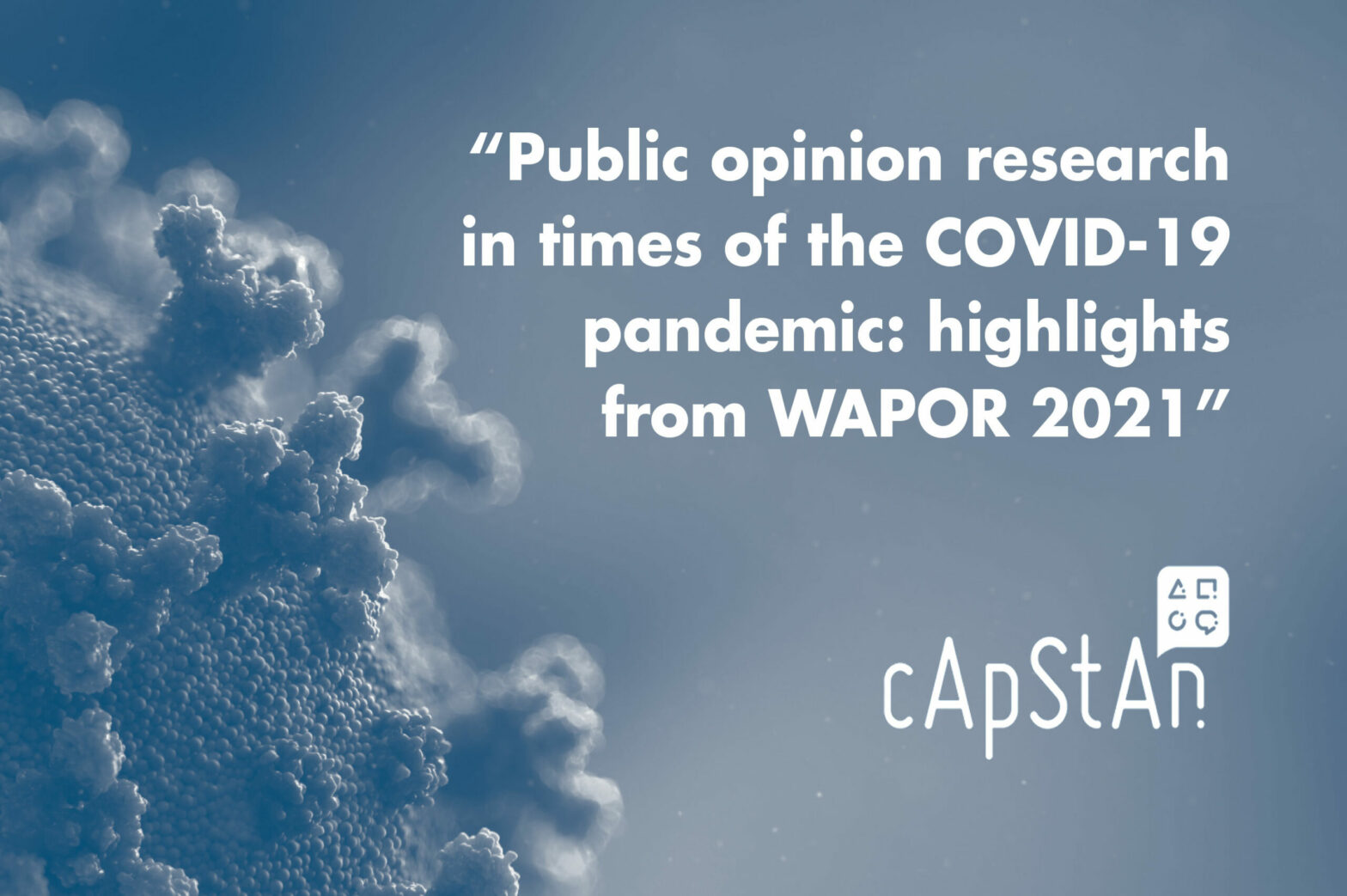
Public opinion research in times of the COVID-19 pandemic: highlights from WAPOR 2021
by Pisana Ferrari – cApStAn Ambassador to the Global Village The COVID-19 pandemic has taken millions of lives worldwide, led to job losses, reduced incomes, affected student learning and caused severe disruption in many different fields of human activity. The survey and polling industry is no exception. The pandemic has affected how data is collected, …
“Public opinion research in times of the COVID-19 pandemic: highlights from WAPOR 2021”
Read More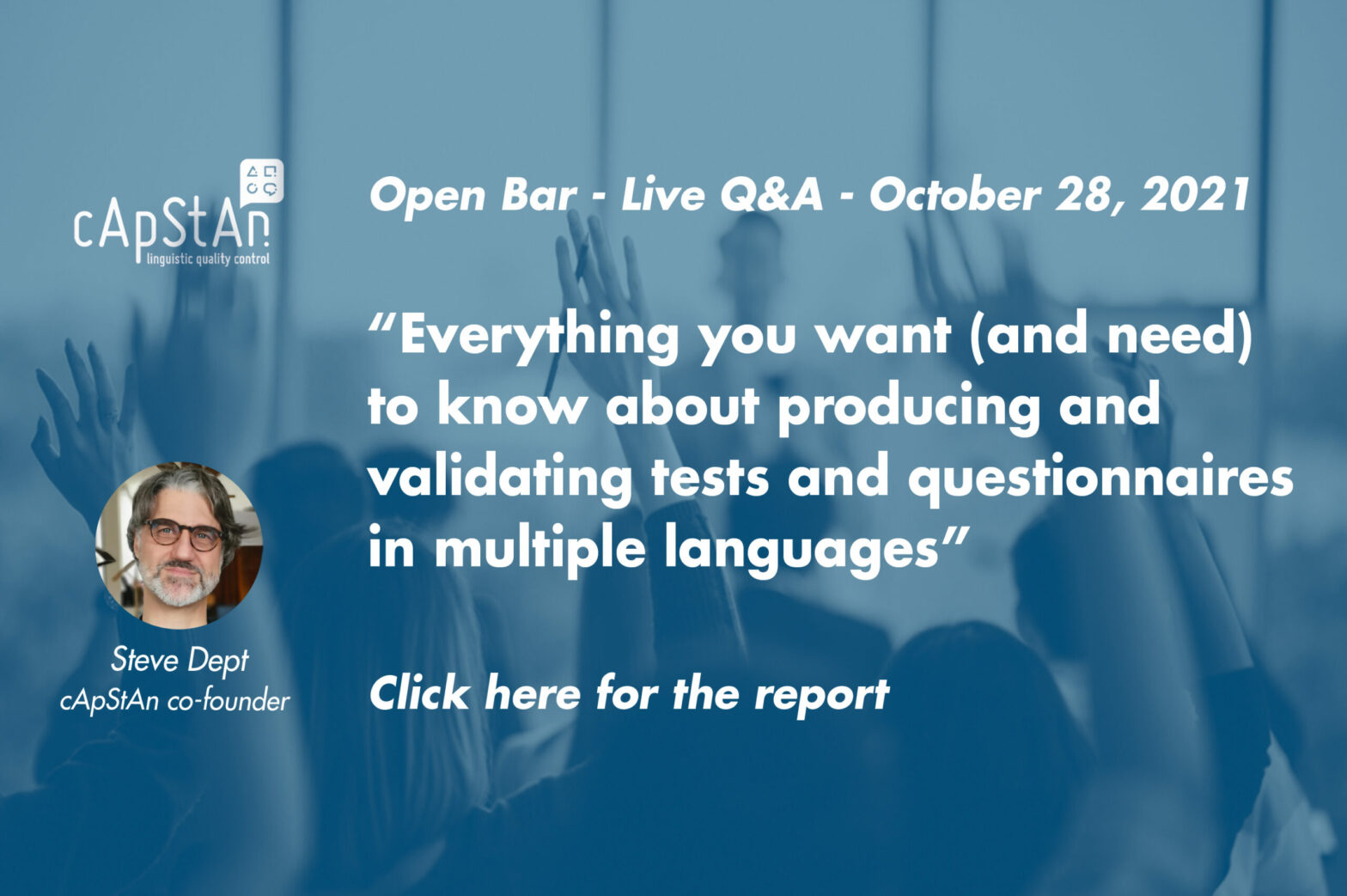
Everything you want (and need) to know about producing and validating tests and questionnaires in multiple languages
by Pisana Ferrari – cApStAn Ambassador to the Global Village Open Bar – Live Q&A – Thursday, October 28, 2021 Our first in the series of cApStAn Open Bar – Live Q&A webinars took place on October 28. Our new format: a very short PowerPoint – with five slides sent to participants in advance– and …
Read More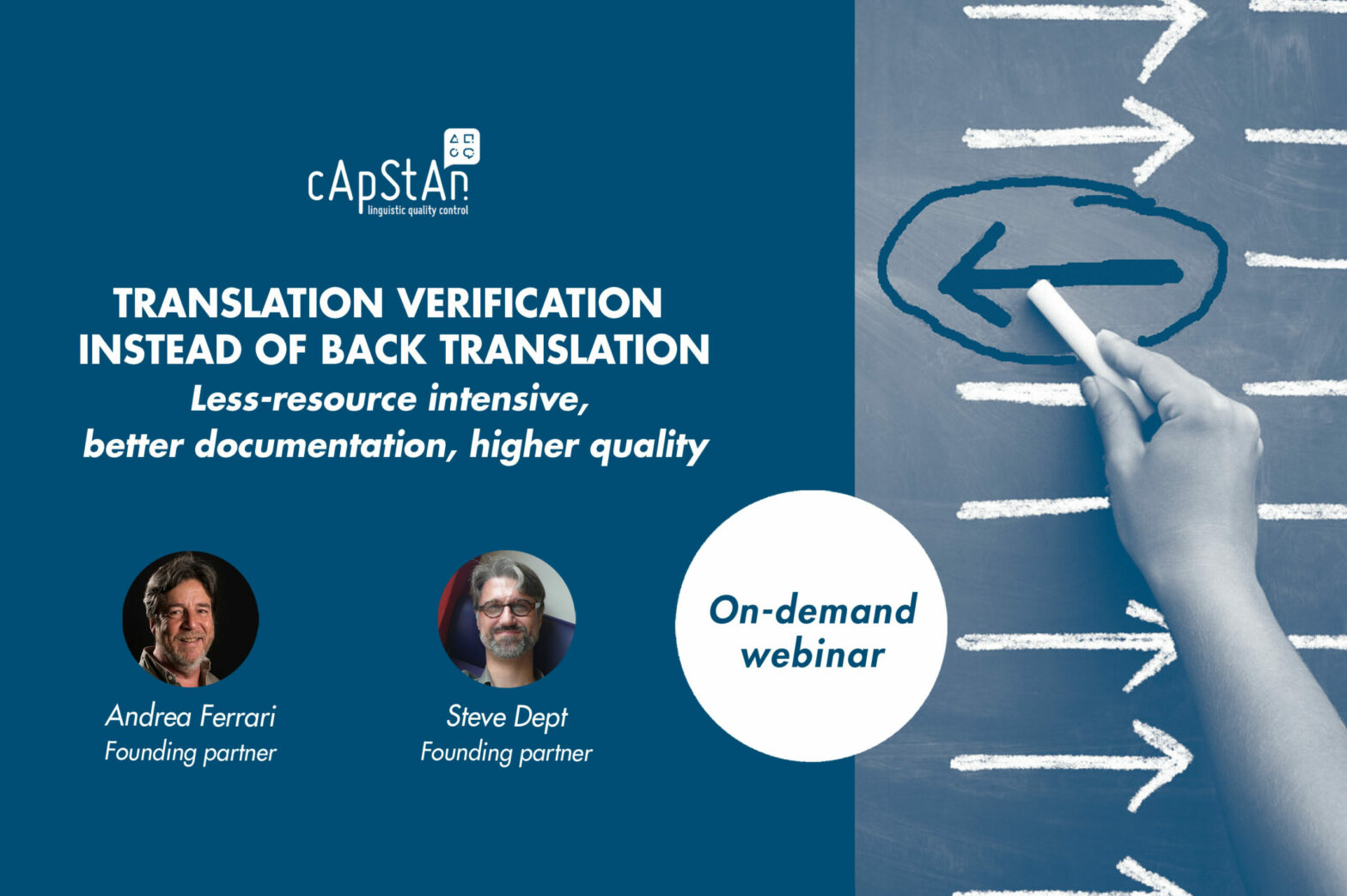
Translation Verification instead of Back Translation
Less-resource intensive | better documentation | higher quality Speakers: cApStAn’s founding partners Steve Dept and Andrea Ferrari Recorded Live on Sept. 22, 2021 | Duration: 1 hr. In this webinar, the speakers will tell you why experts judge that the back translation design is inadequate, but also why the gold standard does not need to be costlier. – To …
“Translation Verification instead of Back Translation”
Read More
Recent study analyses the evolution of socio-economic disparities in literacy skills ages 15-27 in 20 countries
by Pisana Ferrari – cApStAn Ambassador to the Global Village Francesca Borgonovi, from University College London, UK and Artur Pokropek, Educational Research Institute (IBE), Warsaw, Poland, take a broader perspective on socio-economic disparities in educational achievement and attainment a very well-researched study titled: “The evolution of socio-economic disparities in literacy skills from age 15 to …
Read More
Survey data about non-binary people: a critical tool to inform discussions about policy, resource allocations, and other issues that affect them
by Pisana Ferrari – cApStAn Ambassador to the Global Village “International Non-Binary People’s Day” is celebrated ever year on the 14th of July since 2012 and is aimed at raising awareness around the issues faced by people who do not identify as male or female. The issue is gaining increasing traction in the current debate …
Read More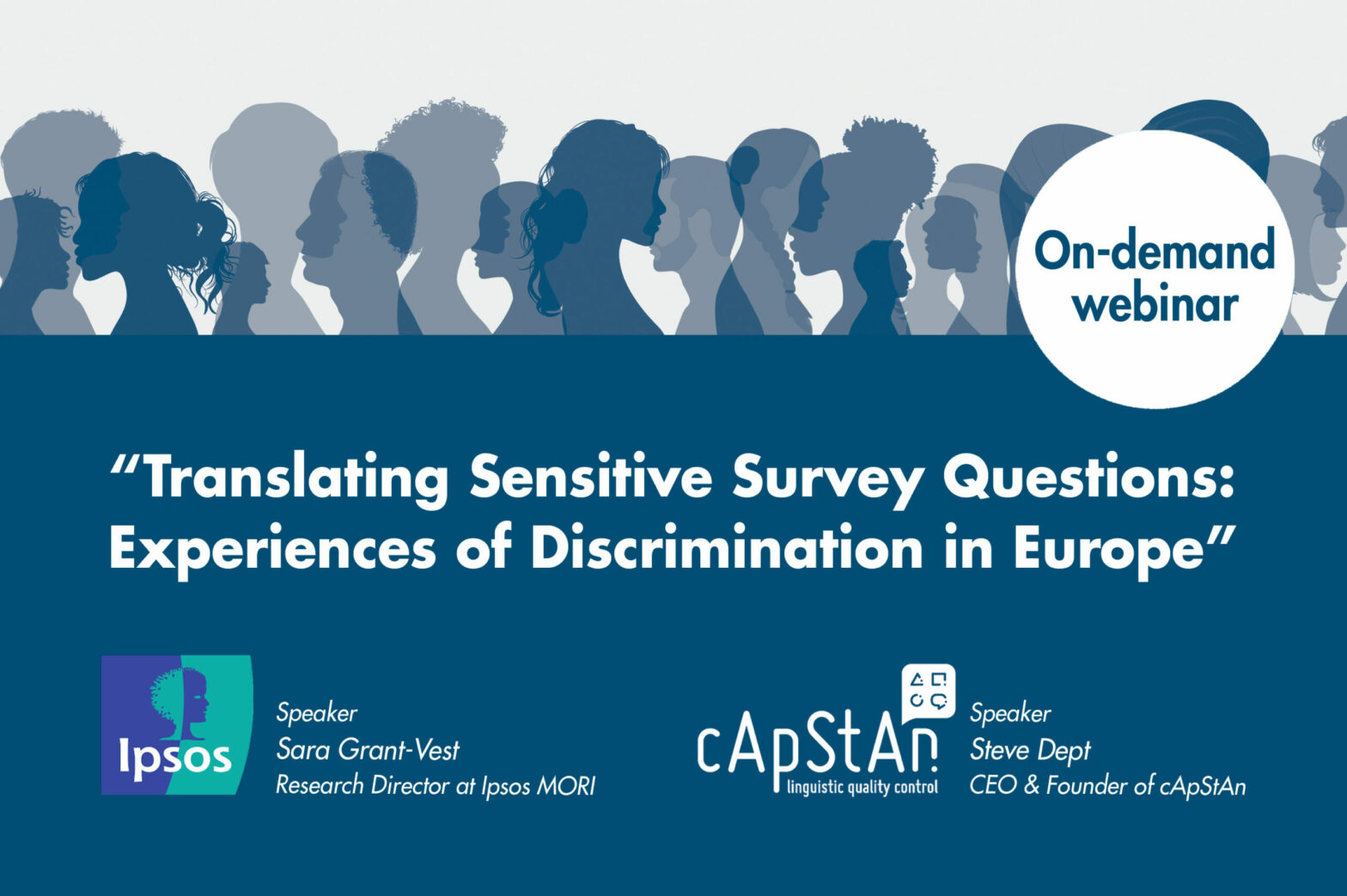
DETAILED TRANSCRIPT: TRANSLATING SENSITIVE SURVEY QUESTIONS – EXPERIENCES OF DISCRIMINATION IN EUROPE
Download your free copy below EU-MIDIS II, the EU’s 2nd Minorities and Discrimination Survey, provides an interesting case study of a close and successful collaboration between the FRA, the EU Agency for Fundamental Rights, the survey organisation Ipsos MORI, and cApStAn LQC. The aim of the EU-MIDIS cycle of surveys is to assist EU …
Read More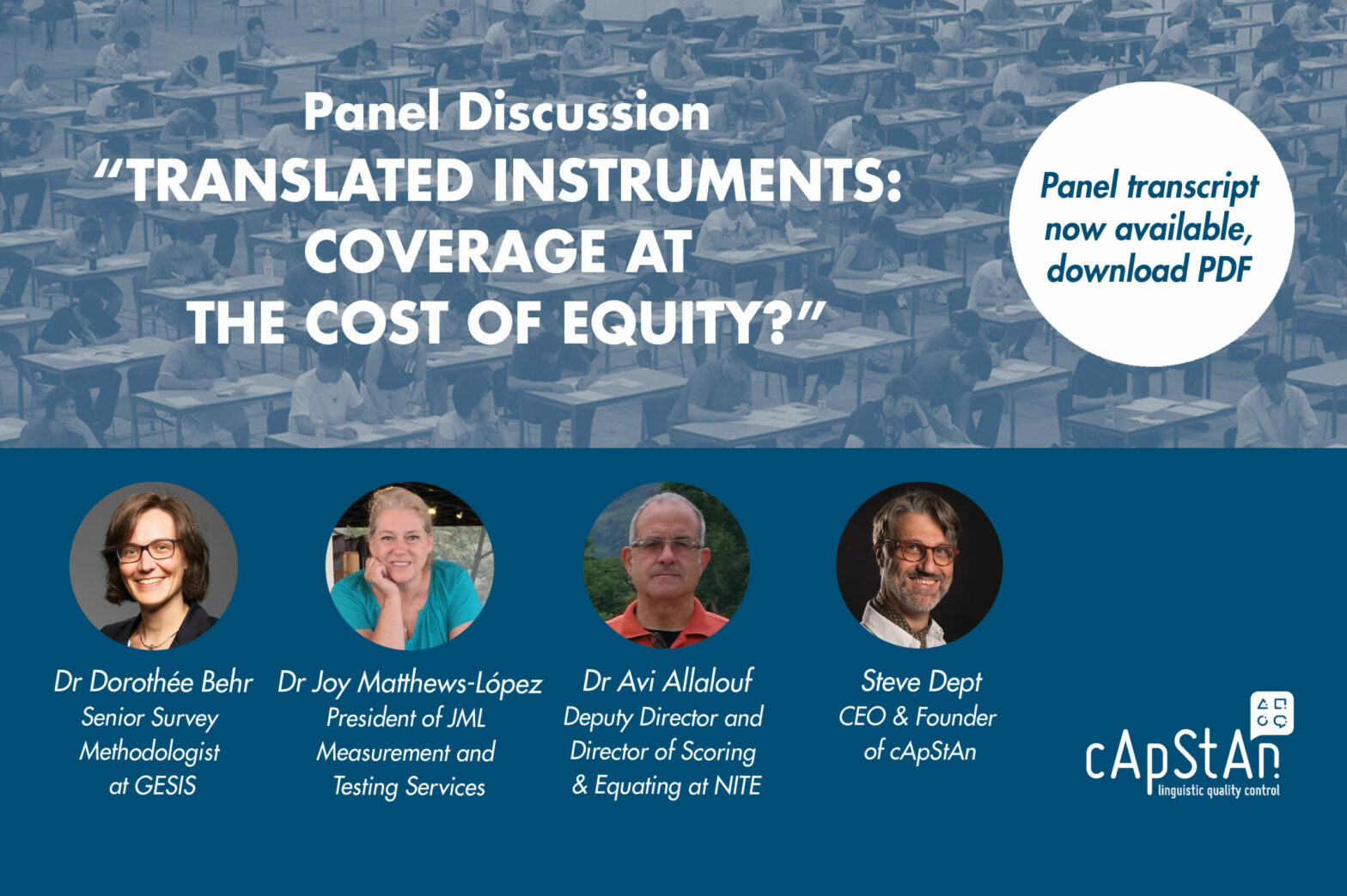
Detailed Transcript: Translated Instruments: Coverage at the cost of Equity?
Standardized tests and questionnaires are used in a variety of contexts: admission to university, certification, hiring, or collecting information about background variables, for example. Tests and surveys may come in more than one language. While this broadens the coverage, it may create disparities if the different language versions are not equivalent. cApStAn’s May 5 online …
“Detailed Transcript: Translated Instruments: Coverage at the cost of Equity?”
Read More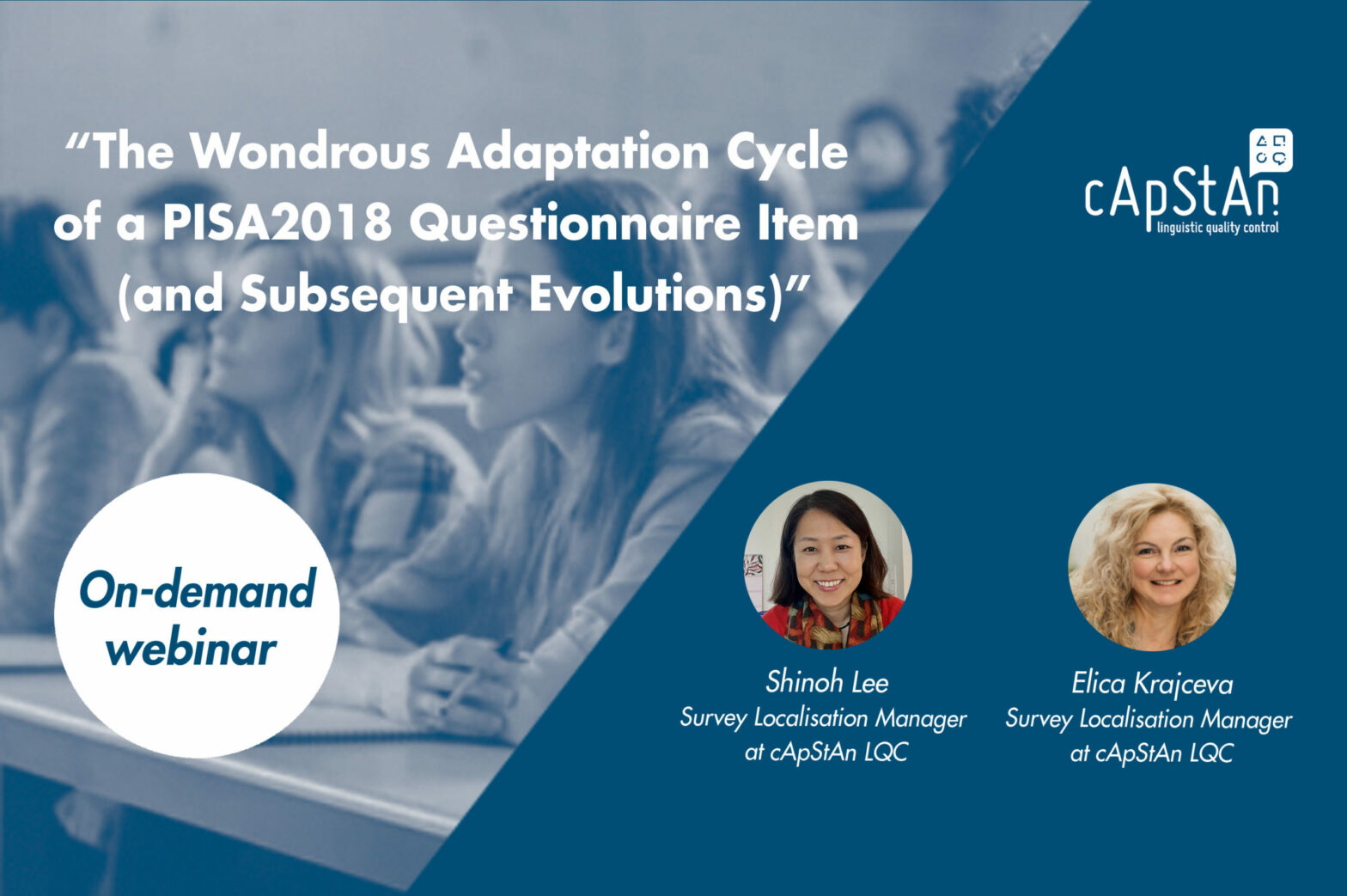
The Wondrous Adaptation Cycle of a PISA2018 Questionnaire Item (and Subsequent Evolutions)
The Wondrous Adaptation Cycle of a PISA2018 Questionnaire Item (and Subsequent Evolutions) Speaker: Shinoh Lee, Survey Localisation Manager at cApStAn LQC Contributor: Elica Krajçeva, Survey Localisation Manager at cApStAn LQC Recorded on 09.03.2021 | Duration: 20 minutes Sophisticated translation designs have become the norm in high-stakes tests and are essential in order to collect comparable …
“The Wondrous Adaptation Cycle of a PISA2018 Questionnaire Item (and Subsequent Evolutions)”
Read More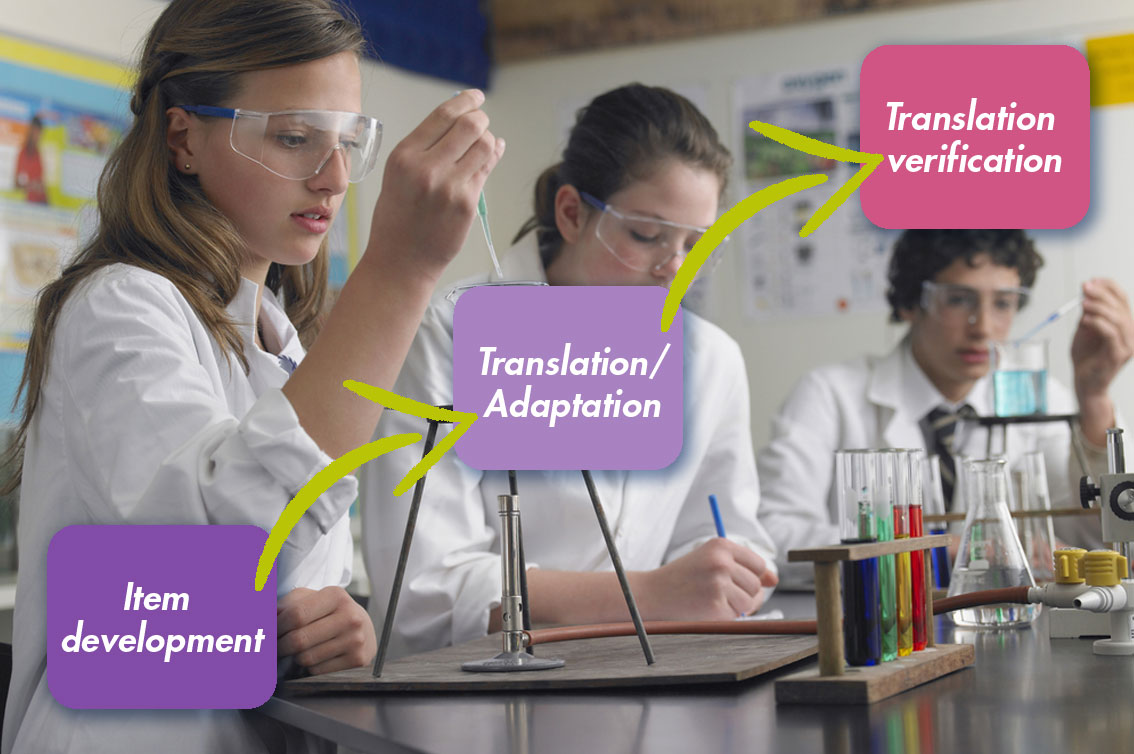
The translation and adaptation journey of a TIMSS grade 8 science item
by Pisana Ferrari – cApStAn Ambassador to the Global Village The IEA’s Trends in International Mathematics and Science Study (TIMSS) is a series of international assessments of the mathematics and science knowledge of students around the world, administered every four years. TIMSS 2019 was conducted in 64 countries and 8 benchmarking systems. The outcomes of …
“The translation and adaptation journey of a TIMSS grade 8 science item”
Read More
What are “intervention categories” and how can revisers use them to improve translation quality?
by Pisana Ferrari – cApStAn Ambassador to the Global Village How do you define “translation quality”? How can it be measured? In a recent live webinar cApStAn’s CEO Steve Dept explained how “intervention categories” used in a translation verification process can help report on translation quality in a standardized way and generate meaningful statistics. Translation …
“What are “intervention categories” and how can revisers use them to improve translation quality?”
Read More
Trend Measurement in International Assessment Surveys
by Andrea Ferrari – Senior Associate In international surveys in general and in comparative assessments in particular, investigators are interested in collecting data about knowledge, skills and competences of a given population at a given point in time. In addition, if periodical data collections are planned, it is of great interest to also measure change …
“Trend Measurement in International Assessment Surveys”
Read More
Rejection of patent filing could have been avoided with a translatablity assessment
by Pisana Ferrari – cApStAn Ambassador to the Global Village A patent filing by Swiss pharma company IBSA (Institut Biochimique S.A.) has been rejected in a US Court ruling which found that the certified English translation of the Italian term semiliquido was “indefinite”, as the English term “half-liquid” could be construed as several things. This …
“Rejection of patent filing could have been avoided with a translatablity assessment”
Read More